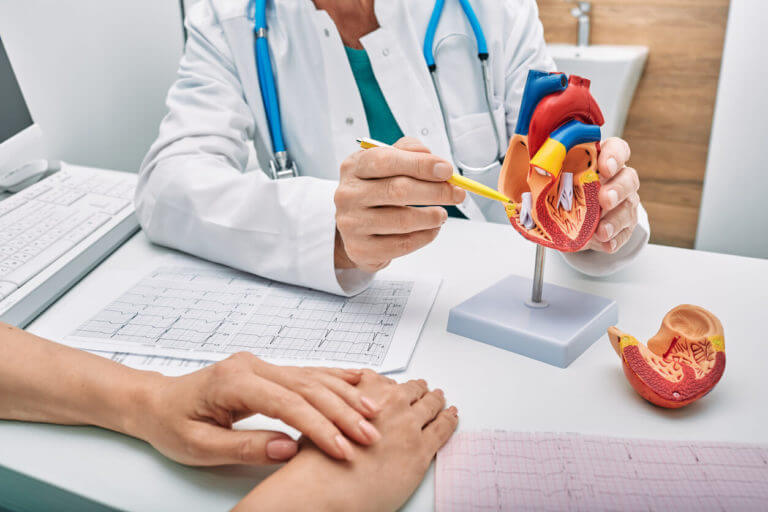
Undoubtedly, our heart is one of the most critical organs of the body. It pumps oxygenated blood throughout your body and ensures that all organs and tissues receive the nutrients and oxygen they need to function efficiently and optimally.
As such, any issue affecting your heart spells disaster. Heart disease is the leading cause of death globally, but with early detection and proactive care, many heart conditions can be managed effectively.
Now the question is, at what point should you see a cardiologist? Let’s discuss some of the most common warning signs and symptoms that could indicate the need for medical attention and the common cardiovascular diseases that a cardiologist regularly treats.
Signs and Symptoms Which Indicate the Need to See a Cardiologist
Here are some common signs and symptoms that should prompt you to see a heart specialist.
Chest Pain
Chest pain is a common indicator that it’s time to visit a cardiologist. Chest pain or discomfort can indicate a heart attack (myocardial infarction), or it may be an indication of angina, a condition caused by the reduction of blood flow to the heart.
In some cases, chest pain may also be due to gastrointestinal issues such as acid reflux, but it should not be ignored. Call 911 immediately if you notice chest along with low heart rate and dizziness.
Shortness of Breath
If you find yourself experiencing breathing difficulty during routine activities or even while resting, your heart is not pumping blood as efficiently as it should.
Having shortness of breath should prompt you to see a cardiologist for a thorough evaluation and treatment.
Heart Palpitations
If your heart beats too fast, too slow, or irregularly, it might indicate a problem such as arrhythmia. Heart palpitations can be bothersome or frightening, but they are usually harmless.
However, you must see a doctor if your heart palpitations are frequent or severe, are accompanied by chest pain and shortness of breath, or occur after you start taking a new medication.
High Blood Pressure
One of the most common signals for an individual to visit a cardiologist is high blood pressure; this is also referred to as hypertension.
High blood pressure is when the force of the blood against the walls of the arteries goes beyond normal levels of 120/80 mmHG. This pressure can lead to serious heart complications such as heart attack, stroke, and heart failure.
Swelling in Your Legs, Ankles, and Feet
While swelling in the legs can indicate a problem with the kidneys and other organs, it can also be a sign of heart failure – a condition in which your heart can’t pump enough blood to meet your body’s needs – especially when it is accompanied by shortness of breath, chest pain, and fatigue.
Dizziness, Lightheadedness, or Fainting
These symptoms can suggest a drop in blood pressure due to heart problems. If you experience dizziness, lightheadedness, or fainting along with chest pain, seek immediate medical attention.
Family History of Heart Diseases
If you have a family history of heart disease, you have a higher risk of developing heart conditions as well.
Your cardiologist will run a few tests, outline some prevention measures, and prescribe lifestyle changes to prevent the development of future heart complications.
Common Cardiovascular Diseases
Here are some common cardiovascular diseases that cardiologist treats regularly:
Coronary Artery Disease (CAD)
This is the most common type of heart disease in which coronary arteries, which supply blood to the heart muscle, get hardened or narrowed due to the build-up of cholesterol and other substances, forming plaques.
Heart Failure
Also known as congestive heart failure (CHF), it occurs when the heart can’t pump blood as well as it should.
Arrhythmia
This refers to abnormal heart rhythms. The heart can beat too slowly, too fast, or irregularly.
Peripheral Arterial Disease (PAD)
It’s a circulatory problem in which narrowed arteries reduce blood flow to your limbs. PAD often causes pain in the legs.
Stroke
A stroke occurs when the blood supply to a part of your brain is interrupted or reduced, depriving brain tissue of oxygen and nutrients. Strokes are closely linked to heart health.
Valvular Heart Disease
Heart valves regulate blood flow through your heart. Several disorders can affect the heart valve’s function, leading to stenosis (narrowing), prolapse (improper closing), or regurgitation (leakage).
Best Cardiologist Near Me in New Jersey
Prevention is always better than cure when it comes to health. In the case of heart health, regular screenings and examinations can go a long way in managing the risk of cardiovascular issues.
If you’ve experienced any of the symptoms listed above, it’s time to visit a cardiologist here at Hudson MD Group. We have a team of highly trained and compassionate cardiologists who offer high-quality, personalized cardiac care that produces excellent outcomes. We also work with our patients on a personal level to assess their risk factors for heart disease and develop tailor-made preventive care plans.
If you would like to schedule a one-on-one consultation with one of our cardiologists at Hudson MD Group in West Orange, contact us at (973) 705-4914 or use our online appointment request form.


